Simulated Interviews
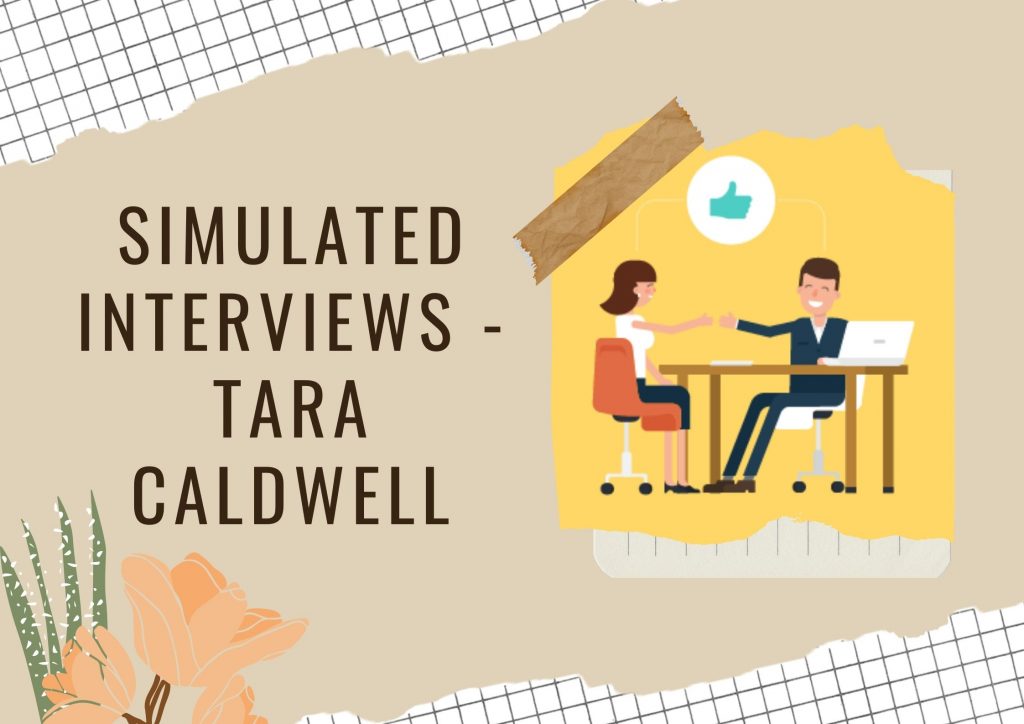
The process of job interviews is nerve racking enough never mind being interviewed by the people you see every day, the same people who will be applying and interviewing for similar jobs in the future. So when I heard that as part of my work placement module I would have to be interviewed by a panel of my peers I became very nervous and naturally dreaded the whole experience.
‘The reflective cycle focuses on learning from experiences by involving feelings, thoughts, and recommendations for future actions’ ((Husebø, O’Regan and Nestel, 2015) I aim to reflect on my performance during these simulated interviews using Gibbs reflective model incorporating my feelings, thoughts and plans for future action.
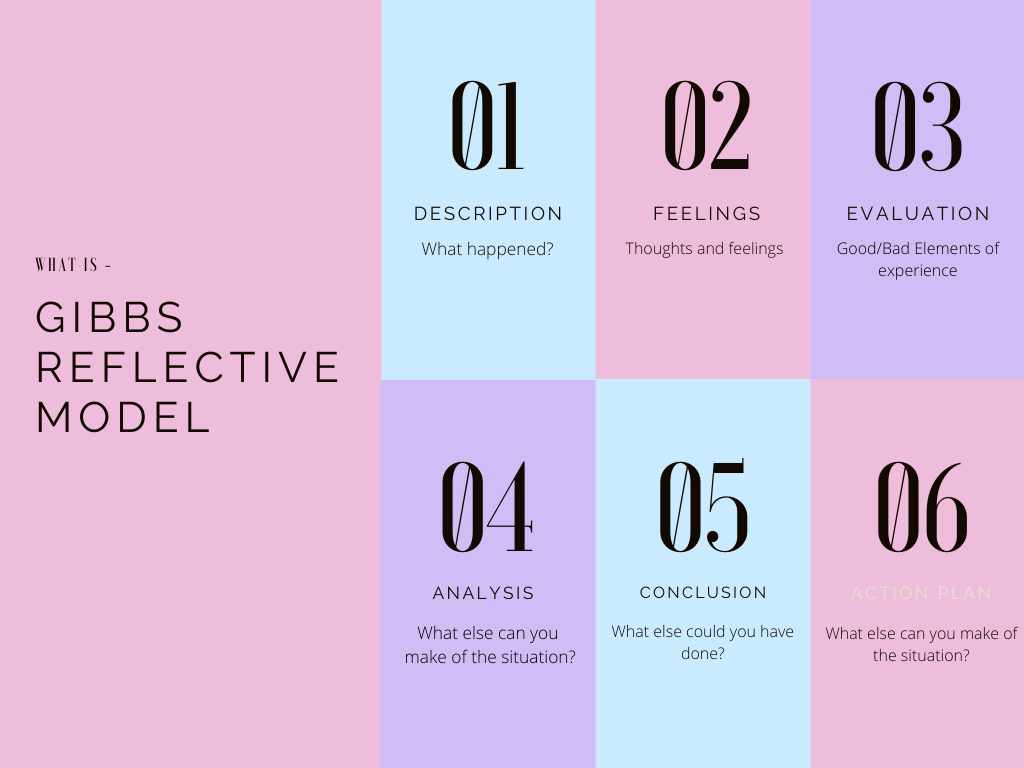
Step 1 – Description
The interviews were held during our normal class and tutorial time in our normal tutorial class room. The familiar setting helped ease my nerves slightly as I walked into class. We were separated into groups of 4 or 5 and all given the same instructions – Act as a panel and interview each member. We had each selected and submitted a job that we felt we would want in the future the previous week and prepared questions and answers on each group members selected jobs. Each member of the group was then asked to complete and submit a feedback form based on our performance.
I had a submitted the job of a Broadcast Operator for live television, I felt the job was practical and exciting and is what I hope to do in the future.

I was the fourth member of our group of 5 to be interviewed and at this point I had relaxed a bit after hearing the questions other members had been asked. This relaxation was short lived once I realised a member of my group was applying for the exact same job as me.
Step 2 – Feelings
As I sat through each member of my groups interviews the main thing I felt was under prepared as I heard everyone else have well thought-out and clear answers and notebooks with prepared questions and answers. I didn’t want to embarrass myself in front of my peers especially after I followed the girl who gave an impressive interview for the same job I was applying for.
As it was my turn next I decided to swallow my pride, fake all the confidence I could and go for it. I was able to answer each question asked and was even able to come up with examples of my experience and how it was relevant to the job.
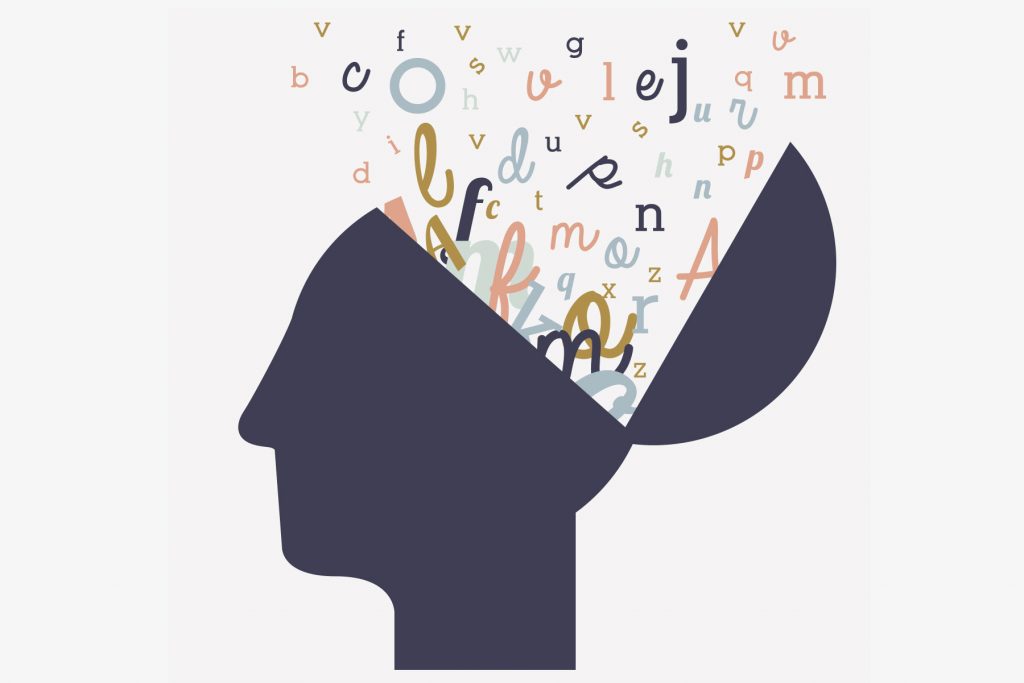
Step 3 – Evaluation
When looking back at my experience of the simulated interviews I can definitely see areas where I can improve. I feel I could have been more prepared, and by researching typical interview questions for the broadcast industry I would have felt less nervous would have given a stronger interview that would be more in line with how I hope to perform in a real life situation.
I do feel this was a valuable experience as I was able to play the part of an interviewer, which allowed me to experience a different angle of interviewing and gave me the opportunity to deliberate and choose questions with the panel. This gave me a different perspective on the process as I worked through choosing questions for the interviewee and what considering the type of answers we hoped to get. This gave me the opportunity to analyse interview answers from a different perspective as I was paying close attention to how the interviewee responded for example how they articulated their experience and how they presented themselves through body language and tone.
Step 4 – Analysis
The biggest take away from this experience was my ability to compare myself to others (in a positive way) In any interview I have done I have only had one experience which is my own, rarely getting feedback on how I have done in the interview whether successful or not. Through this exercise I gained a different perspective on interviewing through watching and learning from the others in my group, particularly picking up on the importance of body language and tone which greatly contributed to the quality of the interview. I had previously underestimated how important this is.
Step 5 – Conclusion
I feel the simulated interviews have taught me a lot and offered me a new perspective on professional interviews that = will help me prepare for my future in the broadcasting industry. I have been able to understand my strengths and weaknesses when interviewing and through using Gibbs reflective model I have analysed my performance. Through my reflection I feel my greatest weakness was my lack of preparation and nervousness.

In the future I would prepare examples of my experience ahead of time in order to give a stronger response, However I was happy to receive positive feedback from my simulated interview. I was able to present myself well despite the nerves as I was given mostly 5/5 for my confidence when answering as well as my use of sophisticated language., This has boosted my confidence and encouraged me to not be so hard on myself before interviews! I believe that this was an extremely valuable exercise as I have gained an extra understanding of how I am perceived by others when put under pressure. The feedback forms have really helped me understand what I need to improve in order to succeed in the future.
Step 6- Action Plan
In order to improve and learn from my experience I plan to take on what I have learnt throughout my work placement lectures, particularly focusing on the STAR method.
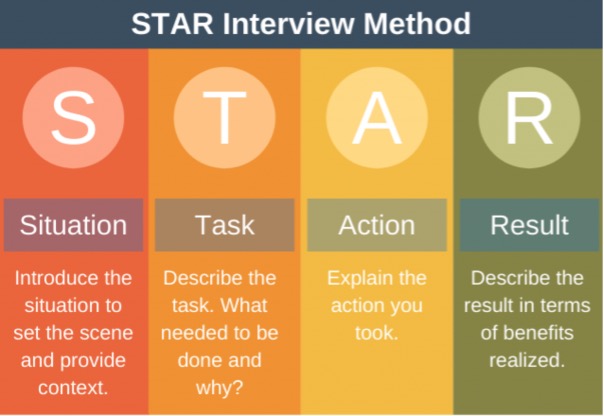
The star method refers to a technique that aims to relate your past experience to a role, and is a method which I feel would be most effective for me to structure concise and effective answers in future interviews. When reviewing my feedback forms I was marked poorly on my ability to elaborate my experiences in the industry, I believe this is due to my lack of preparation however I feel the discovery of the STAR method will give me a structure to help me articulate my experience and represent myself in the best way possible.
Overall I am grateful that I was able to have this experience during my work placement module. I feel that it was really helpful to me in learning what a professional interview is like and has helped me to develop skills for a successful interview to secure my dream job.
Works sited –
Gibbs, Graham. Learning by Doing: A Guide to Teaching and Learning Methods. FEU, 1988
Husebø, S., O’Regan, S. and Nestel, D., 2015. Reflective Practice and Its Role in Simulation. Clinical Simulation in Nursing, 11(8), pp.368-375.
Pondering my Placement
You May Also Like

So You Want To Be A Teacher?
17 February 2022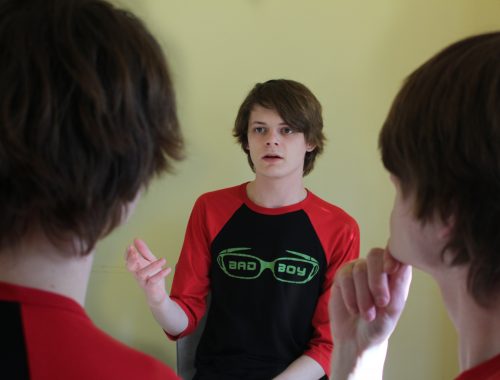
Shocker, Tom also sucks at interviews!
18 February 2022
